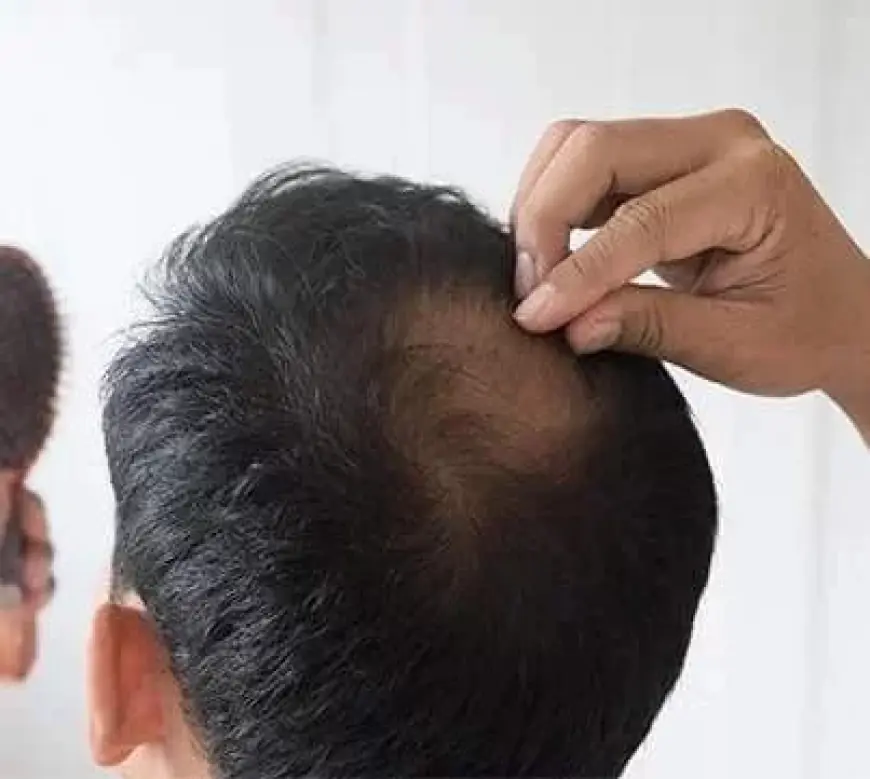Is Finasteride for Hair Loss Safe for Long-Term Use?
Finasteride is especially recommended for people with male pattern baldness. Learn more about Finasteride for Hair Loss in Dubai and avoid baldness for good.

Finasteride is one of the most commonly prescribed medications for hair loss, particularly male pattern baldness. While it has been proven effective in many cases, questions about its long-term safety and potential side effects persist. In this article, we will explore the effectiveness of Finasteride For Hair Loss Dubai, examine its safety profile, and provide insights into whether it is suitable for long-term use.
What Is Finasteride?
Finasteride is a medication primarily used to treat two conditions: benign prostatic hyperplasia (BPH) and male pattern baldness (androgenic alopecia). It works by inhibiting the enzyme 5-alpha reductase, which converts testosterone into its more potent form, dihydrotestosterone (DHT). DHT is a key factor in the development of male pattern baldness, and by reducing its levels, finasteride helps to slow down hair loss and, in some cases, stimulate hair regrowth.
In the context of hair loss, finasteride is usually taken in a 1 mg dose daily. Clinical studies have shown that it can reduce hair loss and promote regrowth in a significant percentage of men suffering from male pattern baldness.
How Effective Is Finasteride for Hair Loss?
Several clinical studies support the effectiveness of finasteride in treating hair loss. In a study published in JAMA Dermatology, it was found that 83% of men taking finasteride for hair loss experienced either a halt in hair loss or hair regrowth after 2 years of treatment. Other research suggests that finasteride can increase hair count and improve the overall appearance of hair.
However, it's important to note that the medication works best in the early stages of hair loss and is more effective in those under the age of 40. The results can vary depending on the individual, and not everyone responds to the treatment in the same way.
While finasteride is generally effective, its long-term use can be a concern for some people due to potential side effects.
Common Side Effects of Finasteride:
As with any medication, finasteride comes with the risk of side effects. Most side effects are mild and transient, but some can persist or become problematic for a small number of users. The most common side effects of finasteride include:
-
Sexual side effects: These include reduced libido, erectile dysfunction, and ejaculation disorders. Studies indicate that up to 10% of men may experience these side effects, although they often resolve after discontinuing the medication. However, a small percentage of men report persistent sexual dysfunction even after stopping finasteride.
-
Psychological effects: Some users have reported experiencing mood changes, depression, and anxiety. These psychological effects are less commonly reported, but they can be distressing for some individuals.
-
Breast changes: Rarely, men taking finasteride may experience breast tenderness, enlargement, or even lumps. This is a side effect that should be monitored, and any changes should be reported to a healthcare provider.
-
Other side effects: These can include headaches, dizziness, and rash. However, these side effects are generally rare and typically resolve after discontinuing the drug.
Long-Term Use of Finasteride: Is It Safe?
The question of whether finasteride is safe for long-term use is one that many users grapple with, especially considering the potential for side effects. Long-term studies on the safety of finasteride have provided some insights, but the results are mixed.
-
Prolonged efficacy: Several studies have shown that finasteride can continue to be effective for hair loss when used over long periods. In one study, men who continued finasteride treatment for 5 years or more showed continued hair regrowth or stabilization of hair loss. This suggests that the medication can remain effective for long-term use in many cases.
-
Long-term side effects: The risk of persistent side effects with long-term use is a major concern. While most side effects are reversible upon discontinuation of the medication, some men report lasting sexual dysfunction or psychological effects even after stopping finasteride. These persistent side effects, sometimes referred to as "Post-Finasteride Syndrome" (PFS), have been a subject of debate within the medical community. While not universally accepted as a diagnosable condition, the symptoms reported by affected individuals suggest that the drug can have long-term effects in a small subset of users.
-
Cancer risk: Finasteride has been linked to a slight increase in the risk of developing high-grade prostate cancer, though the overall risk remains very low. Some studies suggest that while finasteride reduces the overall incidence of prostate cancer, it may increase the likelihood of more aggressive forms of the disease. This is still an area of ongoing research, and men considering long-term use of finasteride should discuss this potential risk with their healthcare provider.
Alternatives to Finasteride for Long-Term Hair Loss Management:
For those concerned about the long-term use of finasteride, there are alternatives available. These include:
-
Minoxidil: An over-the-counter topical treatment that is also proven to help with hair regrowth. Minoxidil can be used in conjunction with finasteride or as a standalone treatment.
-
Hair Transplants: Surgical options like follicular unit extraction (FUE) or follicular unit transplantation (FUT) are more permanent solutions for hair loss. These methods involve transplanting hair follicles from a donor area (typically the back of the head) to areas experiencing hair thinning.
-
Low-Level Laser Therapy (LLLT): This is a non-invasive treatment that uses red light to stimulate hair growth. Some clinical studies have shown positive results with LLLT, though it is not as widely used or as thoroughly researched as finasteride.
-
Platelet-Rich Plasma (PRP) Therapy: In PRP therapy, blood is drawn from the patient, processed to concentrate the platelets, and then injected into the scalp. This therapy has shown some promise in stimulating hair growth but is still considered experimental by some experts.
Should You Use Finasteride Long-Term?
The decision to use finasteride long-term depends on several factors, including the severity of your hair loss, how well you respond to the medication, and whether you are comfortable with the potential risks.
For many men, the benefits of continued use outweigh the risks, especially when the medication is effective in preventing further hair loss and promoting regrowth. However, it’s essential to monitor any side effects and communicate with a healthcare provider regularly.
If you are experiencing persistent side effects or have concerns about the risks of long-term use, it’s important to discuss these with your doctor. They can help you weigh the pros and cons, explore alternatives, and adjust your treatment plan as necessary.
Conclusion:
Finasteride For Hair Loss in Dubai remains one of the most effective and widely prescribed treatments for male pattern baldness. For many individuals, its benefits, including halting hair loss and promoting regrowth, outweigh the potential risks. However, the question of long-term safety remains complex, particularly concerning sexual and psychological side effects. While most men tolerate finasteride well, those considering long-term use should carefully monitor their health and discuss any concerns with their doctor. With proper management and regular check-ups, finasteride can be a safe and effective solution for those struggling with hair loss.
What's Your Reaction?
 Like
0
Like
0
 Dislike
0
Dislike
0
 Love
0
Love
0
 Funny
0
Funny
0
 Angry
0
Angry
0
 Sad
0
Sad
0
 Wow
0
Wow
0






















































